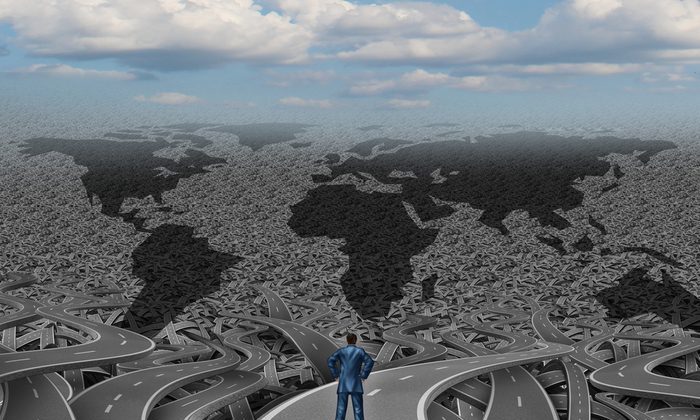Last week, I was at the annual meeting of the World Economic Forum in Davos. It was my 10th time there, but the atmosphere was quite different from usual. Shockingly so, in fact.
Since Brexit and the election of Donald Trump last year, we are starting to see the breakdown of the liberal world order established in the aftermath of World War II.
No one at Davos was happy.
British participants were bemoaning their country’s decision to leave the EU. The Europeans seemed to have lost any sense of purpose or direction. Participants from the United States were torn between optimism for the economy and pessimism for foreign affairs. As for China, President Xi Jinping spoke very nicely, but proposed few concrete or pragmatic actions.
Under Trump, the United States will surely become increasingly isolationist and protectionist with “America First” policy. The country will withdraw from the Paris Agreement on climate changeーit’s already withdrawn from the Trans-Pacific Partnership free trade agreement and plans to renegotiate the North American Free Trade Agreement (NAFTA). It’s also beginning to reconsider all of its long-standing military commitments, whether to NATO or to Japan.
With the United States turning its back on the world like this, I expect most global problems—climate change, conflict resolution, multilateral trade deals, and so forth—to not just remain unaddressed, but deteriorate over the next four years.
If the United States is going to abandon its long-standing role as moral leader of the free world, who is going to step in to take its place?
Not the UK, which will be too busy renegotiating with the EU and opening new negotiations with other trading partners around the world.
Not the EU, which will be too busy confronting the results of the French and German elections (May and September, respectively), and trying to hold itself together while addressing challenges like the internal north/south divide and the single currency.
Not China, which can hardly be the leader for free trade, as it has one of the most protected markets of the world’s major economies. Nor can it be a cheerleader for liberal values when it has little freedom of speech or press freedom and world-beating wealth inequality. Plus, as China’s economy slows, it will need to turn inward to deal with its own social and economic problems.
Not Russia, which may be popular with Donald Trump—who may even lift economic sanctions—but is hardly trusted by its European neighbors.
In fact, I believe there are seven countries with the potential to act as leaders for the world: the five permanent members of the UN Security Council (China, France, Russia, the UK, and the US), Germany, and Japan.
Of these, most ruled themselves out that. That leaves Japan.
I was pleasantly surprised at the very positive views that people at Davos—both attendees and speakers—had of Japan, even though Japan’s presence was modest. There was general admiration for its social cohesion, its large and resilient economy, and, most of all, its political stability.
One person suggested to me that perhaps what made Japan so stable relative to the rest of the developed world was that we had had three decades to slowly grind our way through all the economic difficulties that the rest of the world had to fight its way through in a few short years after 2008.
Basically, we’ve suffered through all the problems already.
Japan had an asset bubble in the 1980s which burst in the early 1990s, leading to a collapse in stock and real estate prices. Then came the banking crisis in the late 1990s. We had a populist government (the Democratic Party of Japan) in power from 2009 to 2012, until it collapsed under the weight of its own incompetence. And the Central Bank launched unlimited quantitative easing in 2013.
Because the rest of the world had to digest similar economic upheavals in a shorter time frame, the way was thrown open to Brexit and populist leaders like Donald Trump.
I am not optimistic about the outlook for this year or the next. But I do cherish one small ray of hope. As the world’s other leading nations turn inward to digest their own problems, perhaps—just perhaps—this is the moment for Japan to step forward and share some of the wisdom it has acquired.
Japan has valuable insights on building resilient, cohesive and stable societies. We understand the benefits of globalization and free trade. We know the importance of having continuity and technical competence in government.
So come on, Prime Minister Abe. Get out there and become an evangelist for the liberal world order.
Someone has to.



